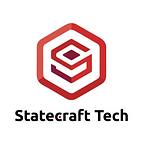Blockchain has potential to drive electric-vehicle infrastructure
Researchers from the University of Waterloo have integrated the use of blockchain into energy systems, a development that could pave the way for expanded charging infrastructure for electric vehicles.
【 Published by E&T| Editor: E&T editorial staff 】
Researchers from the University of Waterloo have integrated the use of blockchain into energy systems, a development that could pave the way for expanded charging infrastructure for electric vehicles.
In a study that outlines the new blockchain-oriented charging system, the team found that there is a lack of trust among charging service providers, property owners and owners of electric vehicles (EVs).
With an open blockchain platform, however, all parties will have access to the data and can see if it has been tampered with. Therefore, by using a blockchain-oriented charging system, EV owners will be able to see if they are being overcharged while property owners will know if they are being underpaid.
“Energy services are increasingly being provided by entities that do not have well-established trust relationships with their customers and partners,” said Christian Gorenflo, a PhD candidate in Waterloo’s David R Cheriton School of Computer Science.
“In this context, blockchains are a promising approach for replacing a central trusted party, for example, making it possible to implement direct peer-to-peer energy trading.”
For the study, Gorenflo — along with his supervisor, Professor Srinivasan Keshav, and Lukasz Golab, professor of Management Science — collaborated with an EV-charging service provider.
The provider, who they did not disclose, works with property owners to install EV supply equipment that is used by EV owners for a fee. Then, the revenue stream from these charging stations is shared between the charging station provider and each property owner. The charging service provider operates the EV supply equipment used, therefore the property owners must trust the provider to compensate them fairly for the electricity used.
During the course of the study, the team were able to identify three steps necessary to incorporate blockchain technology into an energy system.
Firstly, they need to identify the involved parties and their trust relations, and if the level of trust is insufficient to achieve the application’s goals or if it restricts an action necessary to reach that goal, this should be recorded as a trust issue.
Secondly, both parties need to design a minimal blockchain system — which includes smart contracts — that resolves the trust issues identified in the first step. If parts of a legacy system need to be replaced, the new system should closely mimic existing interfaces. This means that dependencies can continue to work with minimal modifications.
In the last step, with the trust-mitigating blockchain system in place, the rest of the system can be migrated constantly over time. This allows the business model to eventually grow from a legacy/blockchain hybrid into a truly decentralised solution.
Gorenflo said: “Mitigating trust issues in EV charging could result in people who have charging stations, and even those who just have an outdoor outlet, being much more willing to team up with an EV charging service provider resulting in much better coverage of charging stations.
“In the end, we could even have a system where there is machine-to-machine communication rather than people-to-machine. If an autonomous vehicle needs power, it could detect that and drive to the nearest charging station and communicate on a platform with that charging station for the power.”
The study, ‘Mitigating Trust Issues in Electric Vehicle Charging using a Blockchain’, was published recently in Proceedings of the Tenth ACM International Conference on Future Energy Systems.
As well as its typical application in the finance sector, as demonstrated above, blockchain technology has the potential to save millions of dollars for the world’s transport and logistics companies.
Nelson Phillips, professor of Strategy and Organisational Behaviour at Imperial College Business School, spoke about its further applications. He said: “Blockchain is closely related to the Internet of Things (IoT). It offers a highly efficient way to keep track of information generated from connected sensors and devices. It could be used to generate many micropayments, for instance insurance costs for every time you use your car, or payment for road use or parking.”
■ Source: E&T
■ Note: Please specify the source or references of the article for reproduced.
■ Solemn declaration: We reproduced articles and news for purpose of sharing information. Copyright belongs to the original author. If there is any infringement/error, please contact us as soon as possible, modify or delete action will be implemented immediately. Content analysis is for information purposes only and does not constitute any investment advice.
■ View Disclaimer: the views, thoughts, and opinions expressed in the text belong solely to the author, and not necessarily to the author’s employer, organization, committee or other group or individual.
■ Please visit our site: Statecraft for more information and the latest news update.
■ Follow Us 👉 Instagram| Facebook | Telegram | Twitter | Youtube | Linkedin | Line@
■ Customer Service:contact@ktrade.email
■ Business Contact:jingluntech@gmail.com
